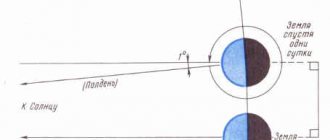Studies that show how long a person can live without food are theoretical in nature, since science does not recognize experiments that are inhumane. Therefore, there is no uniform data on this issue, although most scientists believe that it is almost impossible to live without food for more than two months.
The BBC, citing the British Nutrition Association, writes that a person has a chance to live up to two months if he has access to water. If the hunger strike is dry, then death occurs much faster: after 8-10 days. A similar view can be found in Sharman Russell's . He states that in the early stages of fasting (around the first week), the biggest threat is low blood pressure. If the body is deprived of both food and water, then death usually occurs at this stage.
Q&A Can uric acid levels increase during fasting?
Boris Kudryashov in his book “Encyclopedia of Survival. Survival in an armed conflict zone" suggests that the maximum period of fasting in the presence of drink in an adult reaches 60-70 days. The author notes that the older the person, the longer this period will be, since metabolism slows down with age. He also concludes that women tolerate fasting more easily than men.
Possible reasons for refusing to eat in old age
The need for nutrition is a natural function of the body. If your appetite disappears, there must be a good reason for it.
Possible reasons worth considering include:
- poisoning, intoxication of the body;
- stroke;
- infectious process;
- inflammation in the oral cavity;
- mental disorder;
- pneumonia;
- renal failure;
- oncology;
- dementia;
- diabetes;
- inflammation of the gastrointestinal tract.
Refusal to eat can be voluntary due to mental changes
, and forced. For example, after a stroke, ischemic destructive processes often occur, which create serious problems with chewing and swallowing food. Therefore, it is easier for patients to reduce the frequency of its appointments as much as possible.
Refusal to eat can also be observed due to addictions.
An addiction to alcohol can impair appetite because judgment becomes clouded, brain cells do not work properly while intoxicated, and the patient does not feel hungry. This happens in exactly the same way as in the combination of alcohol and pain. Drunk people can fall, get into fights, and bleed without feeling pain.
Intoxication
also dulls the feeling of hunger. If the patient is poisoned and feels unwell, then he clearly has no time to eat.
Stomatitis and oral diseases
accompanied by pain. To avoid making it worse, pensioners simply try not to eat. But at the same time they drink water, and this is already good.
You should sound the alarm and consult a doctor if an elderly person does not eat or drink for more than 2 days.
People live without food...
Experts say that a person can last from 50 to 60 days without food. This is the upper limit after which death occurs. An integral component of the success of such a fast is sufficient drinking. Without water, a person will die from dehydration within a week.
Only people who have a sufficient supply of energy resource – fat – can go on a hunger strike. The body will still function as usual. He will need energy. He will not receive it from the outside with food, and will compensate for the deficiency from internal reserves. This is not to say that only people with large or overweight can fast. A fasting person must have normal parameters; his body will figure out what resources at this moment can be used to obtain energy.
How to recognize the true reason for refusing to eat?
You can endlessly guess at the tea leaves, trying to find a reasonable explanation for an elderly person’s refusal to eat. But there may be several reasons at once, and they need to be dealt with. To get a real picture of what is happening, you should undergo a first-priority diagnosis.
First, check:
- general urine and blood tests;
- work of the pancreas and thyroid glands;
- functionality of the kidneys and liver, gall bladder;
- integrity of mucous membranes and absence of inflammation in the oral cavity;
- the functioning of the heart and brain (in order to exclude stroke and its consequences).
To get a referral for testing, you need to see a therapist. Once the cause is determined, it will be possible to try to eliminate it.
What to do to last as long as possible without food
First of all, you need to maintain your heat balance and maintain a low-energy existence for as long as possible because you don't know how long you'll have to go without food.
- By all means, maintain the inner calm necessary to make the right decisions to get out of this situation.
- Outline several scenarios for getting out of this situation. One of them is a way to find and get food (hunting, fishing, picking berries or mushrooms, etc.)
- Avoid stress. A person reacts to any emotional shock with a release of adrenaline, which requires energy expenditure.
A person can last much longer without food if he follows the rules stated above.
Consequences of poor nutrition in old age
We all understand that every person needs a balanced and regular diet. But for older people, it is important to monitor their food intake in a special way, since it is from food that they take most of the vitamins and microelements. Their deficiency provokes:
- loss of muscle mass;
- blood sugar surges;
- fragility of bones and musculoskeletal system;
- active hair loss, brittle nails;
- prostration;
- hormonal imbalances;
- disruptions in brain function.
If the problem is physiological, then it is easier to deal with it. The situation is aggravated if refusal to eat is associated with the psyche. That is, the patient falls into a state in which he does not feel hungry. The body rapidly loses weight, anorexia sets in. And this can even turn into death. You can try to explain something on your own and reach out to a pensioner, but you shouldn’t really hope for results. Here it is necessary to urgently contact an endocrinologist, psychotherapist, psychologist and gastroenterologist.
It also happens that a pensioner has a crisis that he is not able to cope with. He cannot accept the fact of approaching death, he is tired of enduring physical pain, he feels a feeling of melancholy and isolation from the world. At the same time, he may still have an appetite, but he will not eat. Thus, the patient consciously tries to end his torment as quickly as possible and die. Of course, here you also cannot do without the help of specialists.
How long can a person live without food?
Almost 50 days since Ukrainian film director Oleg Sentsov went on hunger strike.
Perhaps the most difficult thing for us is the lack of clear information about the state of his health. From a medical point of view, we will try to understand what happens to the body of a fasting person at different stages of a hunger strike. A political action that is not without meaning
This is one of the most effective methods of struggle... Many people have resorted to it. Unfortunately, history knows many cases when a hunger strike ended in the death of a protester. In December 1986, dissident Anatoly Marchenko died in the hospital of the Chistopol watch factory in the Republic of Tatarstan. He served a 10-year sentence in the camp, where he went on a hunger strike. The dissident's death occurred as a result of breaking a 117-day hunger strike. Marchenko demanded the release of all political prisoners, and to his credit, he achieved this, but at the cost of his own life.
The death of Anatoly Marchenko created a great resonance in the USSR. This topic was widely covered by foreign media, and the then Secretary General Gorbachev had to agree to a complete amnesty.
Our compatriot, Oleg Sentsov, was sentenced to 20 years in a maximum security colony. On May 14, 2021, Oleg announced an indefinite hunger strike. The only condition for ending the hunger strike is the release of all Ukrainian political prisoners who are on the territory of the Russian Federation.
The eighth week of Oleg’s hunger strike will soon begin... We don’t know what state his body is in due to the lack of clear information. Together with experts, we will try to figure out how long a person can live without food.
The first days without food
During the first 2-3 days without food, a person experiences a stage of food arousal. During this period, the body actively uses its own energy reserves in the form of glycogen in the liver, as well as fat deposits and protein.
Due to a qualitative restructuring of the nutritional system, the skin of the starving person begins to gradually change color. An unpleasant odor appears from the mouth.
3-7 days without food
Oddly enough, from the point of view of self-control, the first 2-3 days of a hunger strike are the most difficult. Already on the fourth day of fasting, the feeling of hunger begins to weaken. The body's glucose reserves are depleted. There is nowhere else to get energy except from fat reserves. And if they run out, the body will begin to break down proteins, mainly muscle tissue.
During this period of time, a sharp weight loss can be observed. At this time, increased acidification of the internal body with ketone bodies occurs, and carbon dioxide accumulates. All this leads to a restructuring of the enzymatic apparatus in cells.
Oddly enough, at this stage of fasting a person can die, but not from a lack of nutrients. During this period, the fasting person’s blood pressure noticeably drops, which is why you can simply lose consciousness and hit your head on a hard object, which can result in death.
Mahatma Gandhi during a hunger strike
Second week of fasting
Finding no more reserves, the body begins to gradually digest the cells of vital organs such as the heart and liver. As you understand, damage to these organs has a significant negative impact on the body. It is important to say here that, of course, everything depends on the body constitution of the starving person. If a person has a lot of fat deposits, then a hunger strike can last a long time. At the same time, if a person has health problems, then a hunger strike can only aggravate this. Let us remind you that, according to available information in the media, Oleg Sentsov has a heart condition.
3-5 weeks of hunger strike
During this period, the health of the starving person begins to deteriorate noticeably. The existing symptoms worsen sharply, there is noticeable muscle atrophy, severe weakness, as well as major problems in the functioning of the musculoskeletal system.
At 3-4 weeks of fasting, a person experiences severe bradycardia - a slow heart rate. The fasting person has severe chills and is constantly freezing due to lack of energy and slow blood circulation.
During this period, vomiting and discharge of the condition only from gastric juice are possible. Serious problems arise with the vision and psyche of the starving person.
Starting from the 5th week of the hunger strike, there is a pronounced lack of vitamin B1 (thiamine). This vitamin has a positive effect on nervous and cardiovascular activity. With a lack of vitamin, the terrible Beriberi disease develops, which affected the inhabitants of Southeast Asia at the beginning of the last century, when they massively switched to polished rice, thereby depriving themselves of the rice shell - the main source of thiamine. Starting from the 5th week, the fasting person experiences involuntary eye movements, severe dizziness, and also begins to see double.
Hunger strike for more than 6 weeks
If a starving person does not eat for more than six weeks, then there is a direct threat to his life. Serious disturbances in brain activity develop. The person spends most of the time unconscious, barely reacting to the people around him. With complete exhaustion of the body, severe jaundice and scurvy develop, and some people may develop blindness and deafness. Serious problems with the functioning of the heart and an excess of toxic substances in the body lead to the death of a starving person.
Expert opinion
Famous American nutritionist Caroline Apovian spoke about the possible consequences of Oleg Sentsov’s hunger strike.
Caroline Apovian Dietitian, USA First of all, it all depends on whether the fasting person drinks water. If you drink water, you can rely on the reserves of proteins and fats in the body. This can hold out for some time, depending on the amount of supplies. I would like to note that often a person dies when they begin to force-feed him through a tube. He is given too much fluid and nutrients, and the heart simply cannot withstand such a load, since a severe electrolyte imbalance occurs. Serious health problems begin after a person loses 18% of weight, and when this figure reaches 30, starvation poses a direct threat to life. There is information that Oleg Sentsov receives water and glucose. However, you won't last long at this. The body needs protein, and if it doesn't get it, it will end in death.
How long can an elderly person live without food?
Many people know that a pensioner’s refusal to eat is often a sign of approaching death. Here it is important to make an allowance for the fact that this can indeed be called one of the evidence, but only in the presence of other changes (slowing of breathing, the onset of a state of apathy, lowering body temperature, immersion in oneself, clouding of consciousness).
According to research, 8 out of 10 patients actually die soon if they refuse food and water for more than 2 days. If this happens, you need to take urgent action.
Time record
This achievement belongs to a resident of Shlisselburg, Agassi Vartanyan. He was able to survive without food for exactly fifty days. However, he had free access to water. This man was preparing for such a difficult test - he cleansed the body of harmful substances. In almost two months, the man lost almost thirty kilograms.
Author of the publication
offline 3 years
Nika
10
I am interested in hiking and traveling, photography and videography. I have been going hiking since childhood. The whole family went and went - sometimes to the sea, then to the river, to the lake, to the forest. There was a time when we spent a whole month in the forest. We lived in tents and cooked over fires. This is probably why I am still drawn to the forest and, in general, to nature. I travel regularly. About three trips a year for 10-15 days and many 2 and 3 day hikes.
Comments: 0Publications: 668Registration: 10/23/2018
Nika Survival in the wild, Medical assistance, Articles
Animal experiments
Experimental somnology was born in the 19th century.
Its founder was a Russian woman, doctor Maria Mikhailovna Manaseina. In her practice, she encountered the death of a patient from insomnia that lasted nine days, and decided to conduct experiments on animals to find out the meaning of sleep for a living organism. Manaseina and her assistants forced puppies at the age of two to three months to stay awake, influencing them with caresses and touches until they died of fatigue - usually this happened after five to six days. If the puppies were deprived of food but allowed to sleep, they lived an average of 25 days. So it became clear that sleep is absolutely necessary to ensure the vital functions of the body. Then similar experiments were carried out on rats: “carousels” were built for them, which did not allow them to sleep, and in case of the slightest drowsiness, the rodents were thrown into the water. When the animals died from artificially induced insomnia three weeks later, their bodies were opened and all sorts of damage was discovered: the presence of liquid exudate in the lungs and trachea, stomach ulcers, internal hemorrhages, etc. About a day before the death of the rodent, the encephalogram showed a drop in amplitude, and, even if the experiment was terminated, the animal could not fall asleep and inevitably died. This drop in EEG amplitude indicated irreversible disturbances in brain function caused by sleep deprivation.
University of Chicago professor Alan Rechtshaffen, who conducted experiments on rats in the 1980s, discovered three main effects of chronic total sleep deprivation: metabolic, immune and hormonal. From insomnia, the rats lost weight, although they ate even more than usual, and quickly became susceptible to infections. Microbes penetrated the circulatory system and internal organs, which are usually sterile, and as a result the animals died from sepsis.











